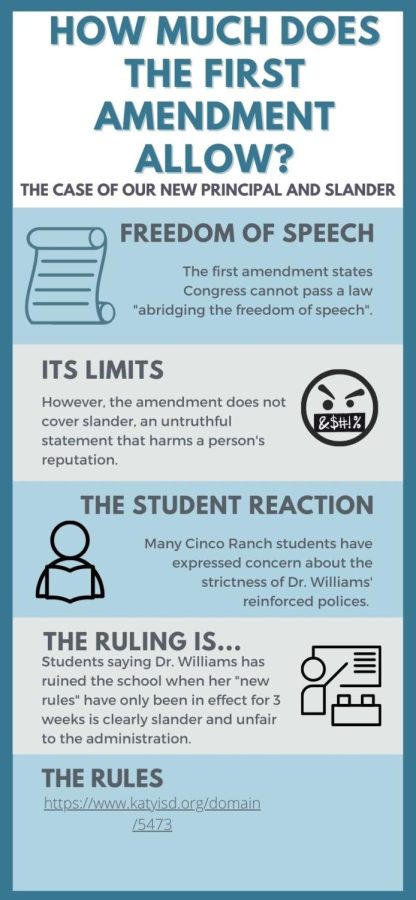Students have all experienced the stress associated with the end of a grading period. Teachers rushing through last minute lectures, three or four tests in one day and of course all night cram sessions for students are all to be expected as teachers submit
final test grades. Given that the short turn around for teachers to teach a lesson and assess the material creates a multitude of inconveniences for students and instructors, perhaps it is time for KatyISD to reconsider a new nine week grading cycle.
The district suggested the nine week cycle earlier this school year. The proposal was voted down for secondary schools, but next year the nine week grading period will be implemented in elementary schools. The new system would be beneficial if teachers submitted progress report grades every four and a half weeks, allowing teachers and students an extra week of flexibility to schedule lesson plans.
Each three weeks teachers are required to have homework grades, three to five quizzes and one test. Some students need more time to grasp the concept and sometimes one or two more days of instruction would suffice, but the three week grading period does not provide that flexibility.
In addition, one six weeks often consists of less than six full weeks due to holidays, or teacher work days, which is more difficult to resolve in a three week period.
With the retest policy teachers have to find time to assess the material and retest the material within a few days. In the alotted time this is an almost impossible task. The math department now retests at the end of the grading cycle with one assessment that covers the entire six weeks, often making retests more difficult than the original test.
However, a nine week grading cycle would require the district to completely alter the online grading and curriculum system, which is potentially costly. There is also concern about the UIL passing requirement, in which students are required to be passing a six weeks to participate in any UIL affiliated competition. With a nine week grading period students who are failing will be forced to sit out of games or academic competitions for an extra three weeks.
Since the grading cycle would be longer, teachers would require more tests, quizzes and homework grades for each final average, so one failing test grade would not be the deciding factor in a student’s success in the class.
The six week system works, but it does not provide the flexibility that is necessary for teachers to establish lesson plans that will best serve the students.

![Tips for Studying Finals [INFOGRAPHIC]](https://crhscountyline.com/wp-content/uploads/2022/12/Studying-for-Finals-900x506.jpg)



